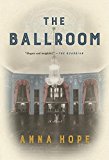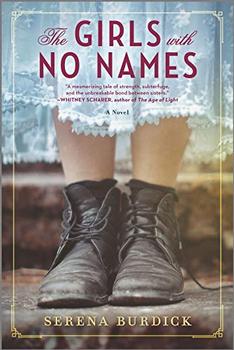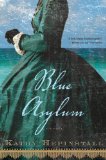Summary | Excerpt | Reviews | Beyond the book | Read-Alikes | Genres & Themes | Author Bio

A Novel
by Anna HopeA searing novel of forbidden love on the Yorkshire moors from the author of the critically acclaimed debut Wake
England, 1911. At Sharston Asylum, men and women are separated by thick walls and barred windows. But on Friday nights, they are allowed to mingle in the asylum's magnificent ballroom. From its balconies and vaulted ceilings to its stained glass, the ballroom is a sanctuary. Onstage, the orchestra plays Strauss and Debussy while the patients twirl across the gleaming dance floor.
Amid this heady ambience, John Mulligan and Ella Fay first meet. John is a sure-footed dancer with a clouded, secretive face; Ella is as skittish as a colt, with her knobby knees and flushed cheeks. Despite their grim circumstances, the unlikely pair strikes up a tenuous courtship. During the week, he writes letters smuggled to her in secret, unaware that Ella cannot read. She enlists a friend to read them aloud and gains resolve from the force of John's words, each sentence a stirring incantation. And, of course, there's always the promise of the ballroom.
Then one of them receives an unexpected opportunity to leave Sharston for good. As Anna Hope's powerful, bittersweet novel unfolds, John and Ella face an agonizing dilemma: whether to cling to familiar comforts or to confront a new world—living apart, yet forever changed
1911
Winter–Spring
Ella
"Are you going to behave?" The man's voice echoed. "Are you going to behave?"
She made a noise. Could have been yes. Could have been no, but the blanket was pulled off her head and she gasped for air.
An arched hall stretched before her, lit with lamps. The thin hiss of gas. Plants everywhere, and the smell of carbolic soap. On the floor were tiles, reaching out in all directions, polished till they shone, some in the shapes of flowers, but the flowers were black. She knew then that this was no police station, and started shouting in fear, until a young woman in uniform appeared from the darkness and slapped her on the cheek. "There'll be none of that in here."
Irish. Ella whipped her head back, tears in her eyes though she wasn't crying. She knew those Irish girls. There were plenty at the mill. They were mean as hell.
Another woman came, and they put their hands beneath her armpits and began pulling her toward two doors. Ella ...
A haunting, highly readable novel of extremes, The Ballroom explores love and loss; progress and terror; and nature versus the institution, all of which will appeal to those who enjoy books with a slow tension-fueled build-up and an emotionally satisfying ending...continued
Full Review
(676 words)
This review is available to non-members for a limited time. For full access,
become a member today.
(Reviewed by Claire McAlpine).
 As mentioned in Anna Hope's historical novel The Ballroom, just over 100 years ago in 1912, London hosted the first International Eugenics Conference, an event attended by people who believed in the prevention of those deemed inferior – whom they labeled 'feeble-minded' – from reproducing. It was a categorization that referred more to their social class and wealth than intellectual ability. From The Spectator, 25 May 1912:
As mentioned in Anna Hope's historical novel The Ballroom, just over 100 years ago in 1912, London hosted the first International Eugenics Conference, an event attended by people who believed in the prevention of those deemed inferior – whom they labeled 'feeble-minded' – from reproducing. It was a categorization that referred more to their social class and wealth than intellectual ability. From The Spectator, 25 May 1912:
The only way of cutting off the constant stream of idiots and imbeciles and feeble-minded persons who help to fill our prisons and workhouses, reformatories, and asylums is to prevent those who are known to be mentally defective from producing offspring. Undoubtedly the best way of doing this...
This "beyond the book" feature is available to non-members for a limited time. Join today for full access.

If you liked The Ballroom, try these:

by Serena Burdick
Published 2020
A beautiful tale of hope, courage and sisterhood, inspired by the real House of Mercy and the girls confined there for daring to break the rules.

by Kathy Hepinstall
Published 2013
In the midst of the American Civil War, a southern plantation owner's wife is arrested by her husband and declared insane for interfering with his slaves. She is sent to an island mental asylum to come to terms with her wrongdoing, but instead finds love and escape with a war-haunted Confederate soldier.




I have always imagined that paradise will be a kind of library
Click Here to find out who said this, as well as discovering other famous literary quotes!